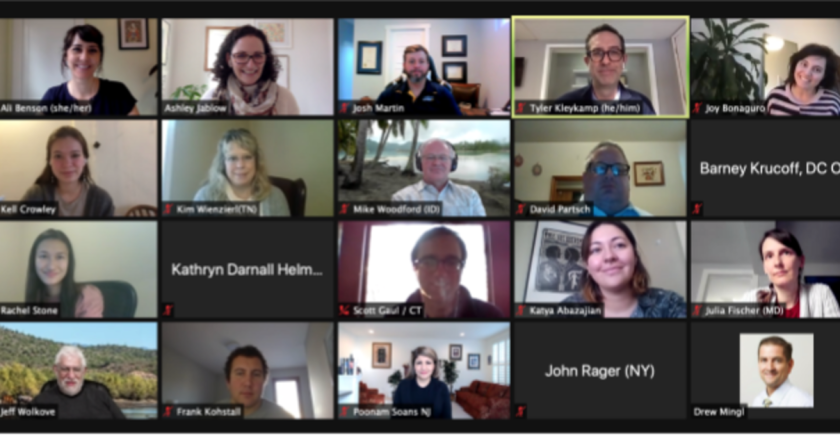
While pandemic response continues to be a focus of state governments, there remains critical work that still must be done, and CDOs are making advances. One CDO is helping improve the way their state serves veterans by leveraging data to identify those most at risk of suicide. Their efforts helped to identify more than 60,000 veterans living in the state that they were previously unaware of.
In another state, the CDO is supporting the reform of affirmative action hiring goals for the state by using updated data and analytics to ensure that those goals are reflective of current demographics. Beyond more equitable hiring practices, this process has cut down on time and paperwork. Even before the pandemic, state benefits systems were struggling. CDOs worked to make strides integrating data across benefits systems to improve the delivery of those services.
OPEN DATA MAKES A COMEBACK
Once governors began creating COVID-19 dashboards, the public’s interest in state data exploded. State open data sites began hosting more detailed case and testing data, and traffic to those sites increased exponentially. This created a demand for more data related to the pandemic, and states responded by increasing the amount of open data they were publishing related to economic impacts and demand for benefits. States like Alaska and Ohio launched open data websites for the first time recently, and CDOs are pushing forward with enhanced open data efforts. When the State CDO Network launched in November 2019, open data efforts were in the background, but it’s becoming a clear priority for CDOs moving forward.LOOKING AHEAD TO 2021
CDOs continue to make progress in critical areas while remaining focused on COVID-19 response. Six clear priorities emerged from the gathering where the network can collaborate on foundational data issues across states:- Data literacy and governance: To use data effectively in states, CDOs can’t do it alone. There’s a growing need for state employees to understand the value of data and how to manage it properly, so that it can be leveraged to its full potential. The network will work to identify effective governance strategies and successful approaches to upskilling the workforce.
- Open data: With a renewed focus on open data, many CDOs have prioritized improving the usability of their open data websites and expanding or improving the data sets being offered. As a network, we’ll explore what the high-value data sets are that states should be publishing and work to better understand how open data is being used at the state level and by whom. The Beeck Center team will also focus on which data sets states can publish to support recovery efforts as we emerge from the pandemic.
- Data inventorying and cataloging: As the demand for data grew during the pandemic, many states realized the value of inventorying and cataloging data. “To bake a cake, you need to know where the ingredients are,” one CDO said, emphasizing the importance of knowing where a state’s data assets lie. States have approached this process in different ways, and the network will work to identify which tools are most effective and generate best practices for the states just starting this journey.
- Organizational strategies: CDO offices vary greatly from state to state. As the efforts begin to scale, the network will evaluate what the core staffing needs are for state CDOs and identify methods to sustain efforts financially over the long term.
- Advocacy: CDOs are evangelists for data within their states and have to work across agencies and with external stakeholders to advance the use of data. The Beeck Center will continue supporting the network to identify effective strategies to build partnerships, get buy-in from partners and leaders and communicate the importance of the work of CDOs to individuals with less technical knowledge.
- Tech platforms: There are no shortage of tech platforms that are used to manage, share, integrate and analyze data. They all work great during the sales pitch, but how well do they work when states implement them? The network will work to better understand the needs of CDOs and their partners, and provide space for CDOs to discuss which tools work best.
This article was originally published by the Beeck Center for Social Impact and Innovation at Georgetown University. Read the original article here.















